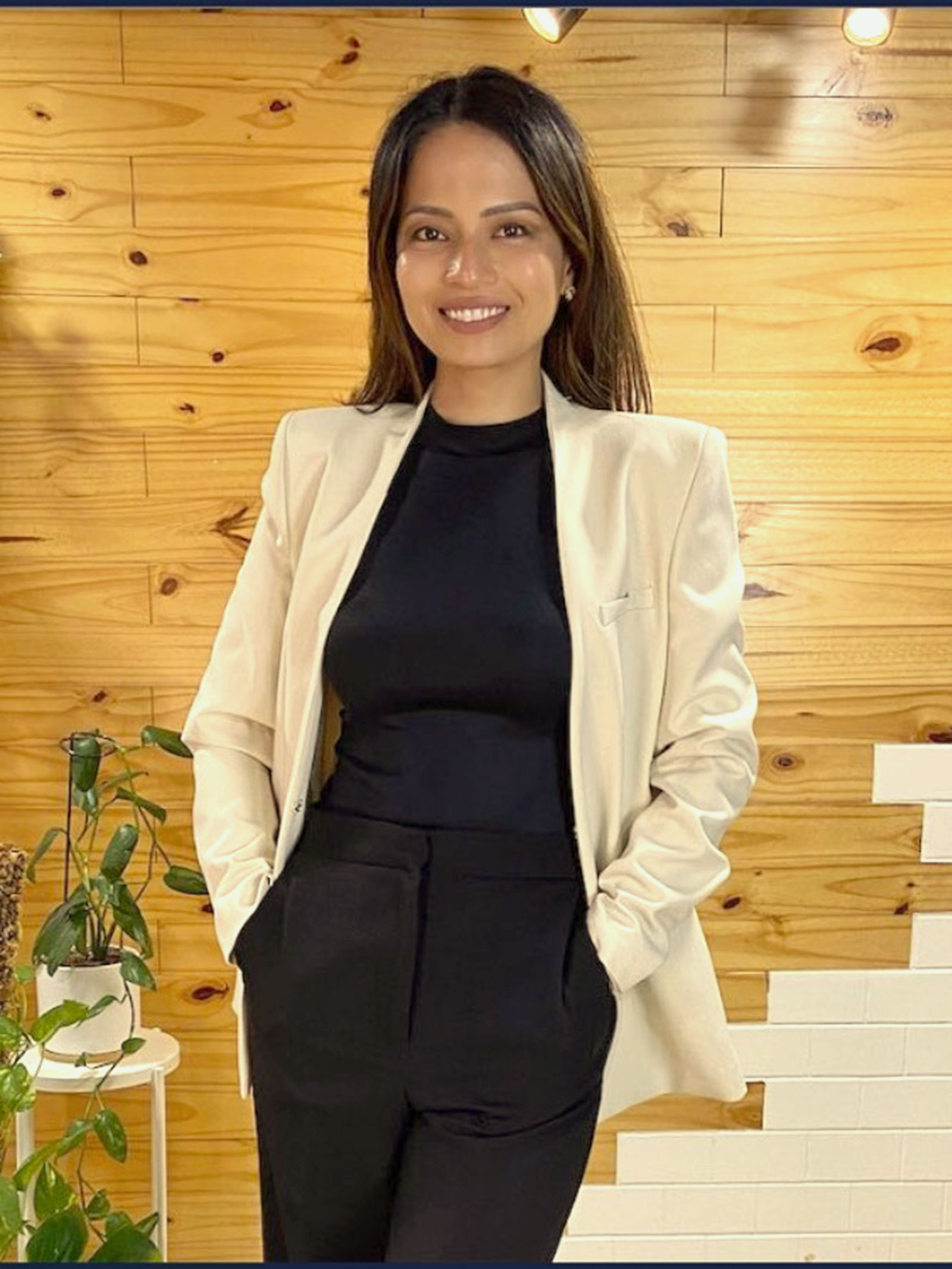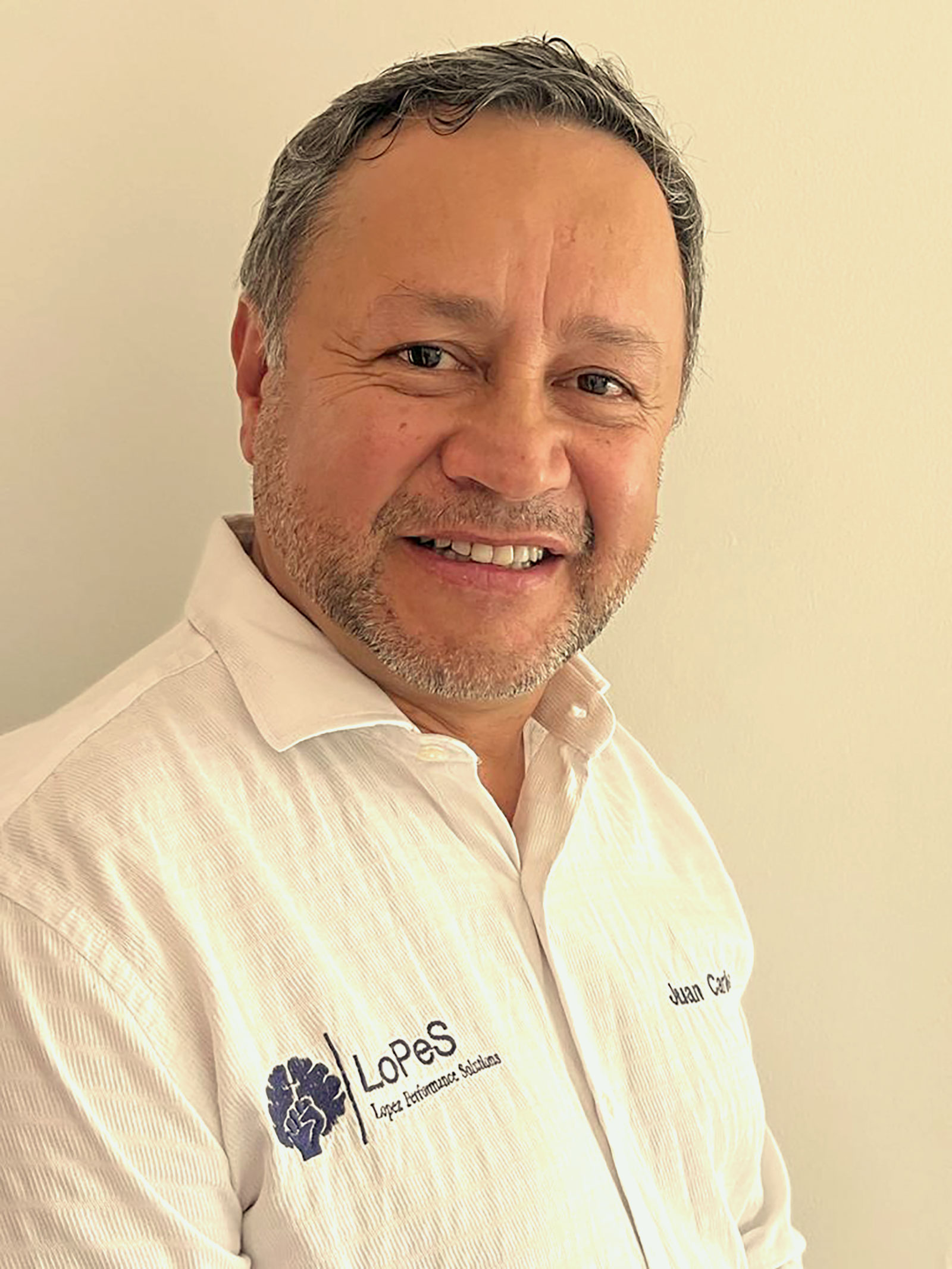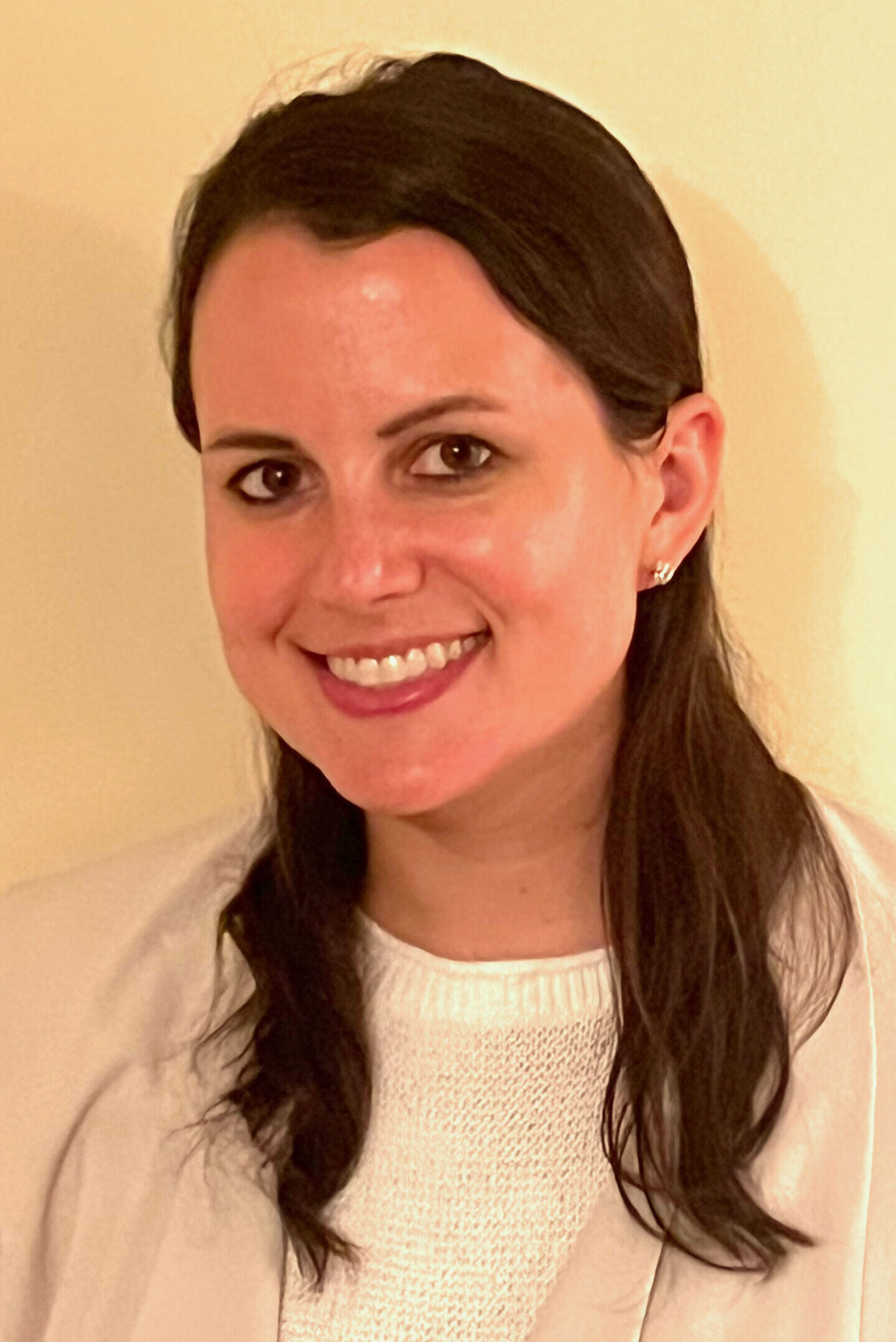On this page
We recently interviewed several alumni of the master’s program in industrial-organizational psychology who are working in various consulting roles. Here, they share what insights into their professional lives and how the IOP degree program helped them meet their goals.
Meet Our Alumni:
- Yasmin Gonzales, Founder, Peak Performance Consulting Group
- Juan Carlos Lopez, Founder, Lopez Performance Solutions
- Cara Mazzucco, Consultant
Yasmin Gonzales

What is your current career?
I co-founded a company called Peak Performance Consulting Group that specializes in leadership development and optimizing employee motivation and performance in the workplace. We also work with companies to transform their culture. Our interventions include workshops, coaching, diagnosing human resource challenges, and conducting 360-degree feedback.
I design and facilitate workshops, coach leaders, design the overall intervention, and do business development and marketing work.
I am also an adjunct faculty member at the Asian Institute of Management (AIM) where I teach motivation, resilience, and social influence. I am also the program director for their post-graduate certificate on resilience.
What does a typical day look like for you?
Every day looks different, as I have almost complete autonomy over my time. I am also a mom of two small kids so I balance everything with that.
What impact has your IOP degree had on your career?
I was successfully able to change my career from marketing to people development because of my ALM degree in IOP. I also feel that I am a lot more skilled now to do the work effectively, as I base all my interventions on the scientific literature. HES taught me the importance of using research as the foundation of any program we develop.
It also opened up the opportunity for me to work at AIM, a business school that is very particular with its faculties’ academic and work achievement.
What did you find in the IOP master’s program at Harvard Extension that you couldn’t have found elsewhere?
I appreciate the freedom the HES IOP program gives you in terms of curating the classes that you want to specialize in. There are a few mandatory classes that are essential for an I-O master’s graduate student to take but HES is also generous in providing enough electives to pursue your interest.
I also like the program’s hybrid setup, which allows me as a mom to pursue my grad school while taking care of my family.
Lastly, graduating from Harvard really opens up doors of opportunity. The professors are top-notch and I also learned so much from my classmates.
What advice would you give to yourself or to future students before beginning this journey?
Be immensely committed to excelling in each one of your classes. While effort is good, you can be rewarded and graded for mastery. You get as much as you give in this program.
Also, take advantage of the on-campus requirement. There is nothing like studying in the Harvard campus and experiencing Cambridge! It was truly an amazing experience.
Juan Carlos Lopez

What is your current career?
I founded a consultancy firm dedicated to helping organizations improve human performance. After two years of operations, we have projects in Latin America and the Middle East.
As managing director of the company, I develop and implement the vision, mission, and strategic plan, interact with potential customers to land contracts, lead the project managers during the execution of the contract, and select alliances, partners and suppliers.
I am also responsible for the development and deployment of products and solutions.
What does a typical day look like for you?
It is difficult to describe a “typical” workday for me. I build my agenda around my main responsibilities described and personal activities to balance my work and non-work life.
Some days are mostly dedicated to following up project progress, while some are fully dedicated to business development.
What impact has your IOP degree had on your career?
So far, my degree has shown a positive impact on two fronts: credibility and improved product effectiveness.
My company’s credibility amongst our customers increases when they see references to research and professors I learned from at Harvard.
My product effectiveness solutions combine IOP scientific principles with the extensive experience my team and I have in the industry. We use statistical models to measure the impact of our solutions and demonstrate their return on the investment. And I would say that our solutions fall under quasi-experimental research.
I needed to complement my extensive hands-on experience with academic and scientifically proven human performance theories and HES helped me to build a highly differentiated portfolio.
Master of Liberal Arts (ALM) in the field of Industrial-Organizational Psychology, ’23
What did you find in the Harvard Extension IOP master’s program that you couldn’t have found elsewhere?
I searched for similar programs in the UK and the US and decided to pursue the master’s at HES because of the academic reputation of the University and the flexibility of the curriculum.
What advice would you give to yourself or to future students before beginning this journey?
Three things come to my mind:
- Work for at least three to five years before pursuing a master’s. This way, you can correlate the academic concepts with your real work-life experience. Professional experience will help you get the most out of your degree experience.
- Pace your courses according to your time availability. HES courses are demanding in terms of reading, writing, and interacting with professors and classmates. My advice is to block at least 10 hours per week per class, to take advantage of the learning process — and enjoy it!
- Attend at least one class on campus, especially if you are an international student. The experience and the environment are superb. To me, it was one of the highlights of the program.
Cara Mazzucco

What is your current career?
In summer of 2024, I moved cross-country to Phoenix, and am having a baby any day now! I am planning my job next steps in 2025.
Formerly, I worked as a research associate for Ethan Bernstein at Harvard Business School. He is a professor of organizational behavior, which overlaps with industrial-organizational psychology. While at HBS, I helped out with a book Professor Bernstein was writing called “Job Moves: 9 Steps for Making Progress in Your Career,” which released in November 2024. I plan to use the steps myself in my job search and others at HES might find it useful too!
What does a typical day look like for you?
My days boiled down to a lot of reading and writing to support Professor Bernstein’s two main types of work: academic papers and case studies.
For academic papers, since his research is mostly qualitative, I conducted literature reviews of relevant topics to incorporate into the theory sections of the papers.
For case studies (which HBS professors use in their MBA classes), my responsibilities included helping to conduct interviews with employees at companies we are writing a case about, drafting the case studies themselves, and drafting corresponding “teaching notes” that explain how professors at other schools can teach each case.
This role was a great way to delve further into topics like hiring, performance feedback, compensation, employee engagement, and workplace transparency.
What impact has your IOP degree had on your career?
I frequently came across research in my classes that was helpful to incorporate into my work. My instructors were all engaging and passionate about their topics, which further fueled my interest in IOP.
Wherever I head next, whether it be returning to consulting / management — as I previously did so at Liberty Mutual Insurance — or moving into acoaching or people analytics role, or even proceeding on to an IOP PhD, I know my HES degree will serve me well.
What did you find in the IOP master’s program that you couldn’t have found elsewhere?
I actually learned of the IOP program at Harvard Extension School through my previous job at HBS. I began taking a few classes toward the Organizational Behavior Graduate Certificate, because they were both interesting to me and relevant to my work, and then continued on to do the Master of Liberal Arts (ALM).
So, while I didn’t compare HES’ IOP program to others, I am very happy with my decision! The range of classes enabled me to focus on my areas of interest, and the flexible learning model enabled me to complete the degree while working full time.
What advice would you give to yourself or to future students before beginning this journey?
I highly encourage people interested in the IOP program to look closely at the course offerings so that you can get a sense of the wide range of classes available and also start thinking about how to sequence them to meet the degree requirements.
Take a look at the certificate offerings as well — if any look interesting to you, with a little planning, you can complete one or two of them in the course of your degree. Be open to class recommendations from peers along the way as well and adjust your plan as you go.
Whatever courses you choose, I’m sure you’ll have a great experience!

